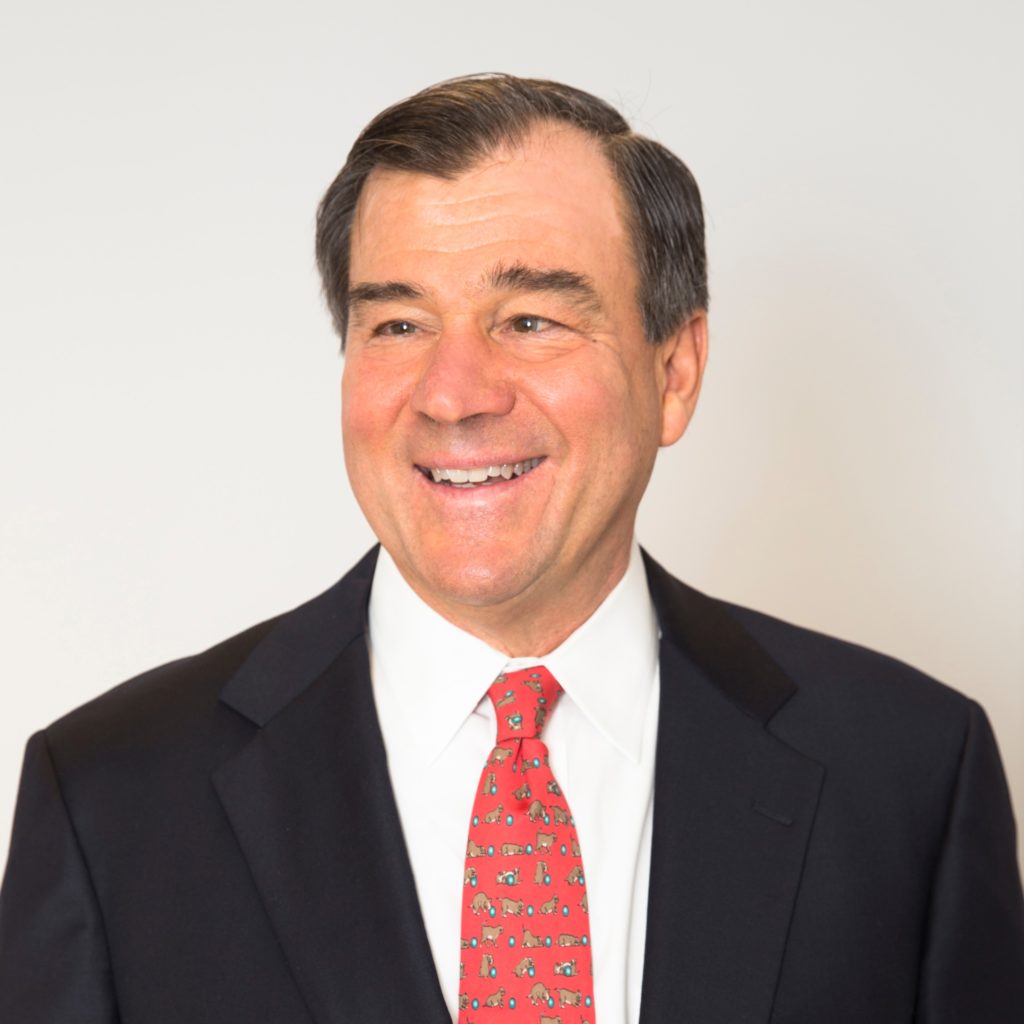
For a lawsuit that was resolved in far less time than it could have, the litigation involving Pier 1 Imports took almost too many twists and turns to count.
For Pier 1, the litigation ended with a great courtroom victory, but also an unexpected sadness.
The federal securities class-action lawsuit brought against Pier 1 saw not one but two rounds of motion to dismiss proceedings, a new federal judge assigned to the case in the middle of the litigation, as well as the departure of Pier 1’s longtime general counsel three years into the legal battle. This all occurred while fighting off one of the most sophisticated plaintiff’s securities law firms in the country.
But a couple of things remained constant throughout the litigation: Pier 1’s stellar outside legal team at Bracewell and the company’s dogged determination to prove to the world that it had committed no wrongdoing. Both constants paved the way to a successful finale last year at 600 Camp Street, New Orleans, Louisiana: the home of the U.S. Court of Appeals for the Fifth Circuit.
Last August, the Fifth Circuit put the Pier 1 class action to bed when it affirmed the lower court’s dismissal.
For reaching a vindicating outcome despite facing many surprising hurdles, Pier 1 General Counsel Robert Bostrom, former GC Mike Carter and Bracewell’s Stephen Crain, Bradley Benoit and Amy Parker Beeson are among the finalists for the 2019 DFW Outstanding Corporate Counsel Awards’ Business Litigation of the Year. The finalists will be honored and the winners announced Jan. 30 at a ceremony hosted by the award’s organizers, the Association of Corporate Counsel’s DFW Chapter and The Texas Lawbook.
Unfortunately, there will be no celebration by Pier 1’s in-house legal department and outside counsel this week.
Last weekend, Bostrom, who had been the general counsel for only a year, died unexpectedly.

The Texas Lawbook and the ACC-DFW offer their heartfelt condolences to Bob Bostrom’s family and his colleagues at Pier 1.
Pier 1 Executive Vice President Christine Murray, who is also the company’s chief human resources officer, issued the following statement:
“On behalf of all of the associates at Pier 1, we extend our sincerest condolences to Bob’s family and friends. Bob joined Pier 1 in January 2019 as Executive Vice President and Chief Legal and Compliance Officer and Corporate Secretary. He has made a lasting impact on our company, Leadership Team and culture.
“Bob was known as a friend, a trusted advisor and a highly respected colleague with 40 years of experience. Prior to Pier 1, he served as the Senior Vice President and Special Counsel at Abercrombie & Fitch. He previously held general counsel roles and senior positions at global law firms.
“Bob was devoted to his family and spoke of them often and with admiration. Our thoughts and prayers continue to be with his loved ones during this difficult time.”
The legal battle
Although Bostrom’s time at Pier 1 was short, his successful handling of the securities case with Bracewell is one that will leave a lasting effect on the company as it continues to navigate its place in the modern, ever-changing world of retail.
The case memorializes the choppy market conditions that many in the retail world, Pier 1 included, are facing as mighty online retailers like Amazon and Wayfair continue to disrupt their competitors’ traditional business models. The latest testament to that challenge is a rumored upcoming bankruptcy filing by Pier 1 as it continues to announce store closures around the country.
A plaintiff group led by the Municipal Employees’ Retirement System of Michigan (MERS) filed a class-action lawsuit against Pier 1 in 2015, alleging the homegrown Texas company and two of its executives committed securities fraud that knowingly and recklessly hurt investors when they failed to disclose Pier 1’s severe markdown risk for its merchandise.
The plaintiffs, represented by Bernstein Litowitz Berger & Grossmann, alleged Pier 1 failed to disclose that the excessive merchandise at issue — predominantly seasonal inventory and tables, chairs and outdoor furniture — were severely challenging Pier 1’s storage and distribution capacity, resulting in significant costs that Pier 1, former CEO Alexander Smith and former CFO Cary Turner misrepresented to investors.
“We had to structure the argument by putting the statements into context to show why their (the plaintiffs’) characterized statements were unfair or untrue, but we also had to find a way to do that without running afoul.” – Stephen Crain
The 100-page complaint filed in the U.S. District Court for the Northern District of Texas cited dozens of Pier 1 employees, provided pictures of warehouses and even pictures of an internal meeting.
After a beauty pageant among a group of law firms for the case that Bracewell won, Houston partners Crain, Benoit and Beeson got right to work. The team scoured line by line through every relevant Pier 1 investor call, presentation and public filing so that the team could “build a different record to put out there,” Crain said.
With the help of then-Pier 1 General Counsel Mike Carter, the Bracewell team interviewed key personnel at Pier 1 in various departments, including accounting, records, financial reporting, inventory and marketing to help develop a strategy to get the lawsuit dismissed.
Pier 1 filed its first motion to dismiss in October 2016. Crafting the brief was a challenge in itself because the federal securities law mandates that judges examine the issues in the most favorable light for the plaintiffs — essentially judges must assume that the facts laid out by plaintiffs (on the condition that they’re well-pleaded) are true.
This meant that Pier 1 could not explicitly argue the facts at this phase in the litigation — such an act is usually preserved for the summary judgment phase, Crain said.
“We had to structure the argument by putting the statements into context to show why their [the plaintiffs’] characterized statements were unfair or untrue, but we also had to find a way to do that without running afoul,” Crain said. “We did a lot of research around our right to put public statements into what they’re relying upon. We had to convince the court that what we were doing was permissible and what the plaintiffs were saying was unfair.”
U.S. District Judge Sidney Fitzwater granted Pier 1’s motion to dismiss in April 2017, but allowed the plaintiffs to re-plead their arguments. Another round of briefing ensued.
By the time a year had passed, President Donald Trump had nominated — and the U.S. Senate had confirmed — Karen Gren Scholer to the federal bench in the Northern District. As is standard with new federal judges, fellow jurists quickly filled up her docket with cases. The Pier 1 case was among them.
Judge Scholer wasted no time getting up to speed on the case. After reviewing the two rounds of voluminous briefing, Scholer conducted a four-hour motion to dismiss hearing in April 2018. At the hearing Judge Scholer granted Bracewell’s motion to strike the plaintiffs’ expert report, which they added to their amended complaint to heavily support their new position that Pier 1’s products were susceptible to becoming obsolete.
That following June, Judge Scholer dismissed the lawsuit again, ruling that the plaintiffs had still failed to bring forth enough evidence that Pier 1 violated securities laws. The plaintiffs appealed to the Fifth Circuit just before Carter, who had been at Pier 1 since 1990, retired in September 2018, which led to another twist in the litigation.
The company wasn’t too long without a GC, however; Bostrom came on board in January 2019. Pier 1 in-house lawyer Ray McKown, who had also been on the case from the beginning, helped with the transition process.
Bostrom, who had arrived at Pier 1 from Abercrombie & Fitch, came from a diverse legal background. Earlier in his career he headed the financial institutions practice group at Greenberg Traurig, SNR Denton and Winston & Strawn — where he was also managing partner of the firm’s New York office. And for several years, he served as the general counsel for at Freddie Mac, where he worked extensively on cases just like Pier 1’s: complex security class actions.
The Fifth Circuit argument between MERS and Pier 1 boiled down to whether Pier 1 was a trend-based fashion retailer whose inventory carried a significant markdown risk.
But because “Pier 1 operates largely in the sturdier business of style” and because the plaintiffs had still failed to prove fraud, the Fifth Circuit affirmed the dismissal.
“Fashion changes, but style endures,” Judge Jennifer Walker Elrod wrote in the opening of the opinion, quoting Coco Chanel.
A key to Pier 1’s defense was effectively articulating the nuances of its inventory system — made even more complicated as the store tried to adjust its footprint in the somewhat new world of online shopping and determine how much inventory to order for its website versus its brick and mortar stores.
“We deeply believed that the allegations were unfair,” Crain said. “Pier 1 really was doing its best to navigate some very difficult retail times.”
Crain said it was extra rewarding that the Fifth Circuit’s decision also officially cleared the names of Turner and Smith, whom he had gotten to know pretty well because of the litigation.
“It was gratifying for me to be able to say to Alex what I had been saying all along, ‘This is going to be fine, we’re going to get you through this,’” Crain said.
Crain said the win was gratifying for the company because the legal teams and other executives no longer have to be distracted by such massive litigation and can go back to focusing on running the business.
“What was at stake was whether Pier 1 would have to continue to be distracted by an enormous securities case as they tried to weather the storm of being a retailer in this modern, changing retail world,” he said.
